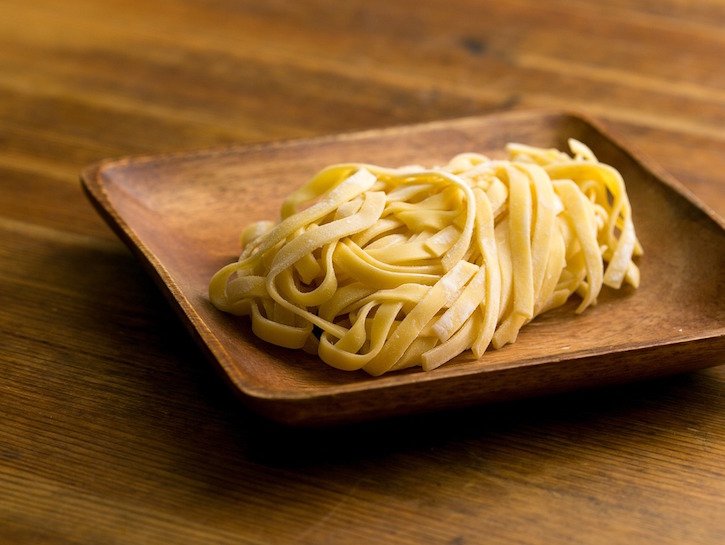First it was chocolate, and now a delicious type of pasta is also at risk of dying out.
Su filindeu is the rarest pasta in the world. Unlike the chocolate, which is in danger of depleting growing locations due to climate change, su filindeu is risking extinction for another reason — there are only three women in the world who know how to make it.
For more than 300 years, the recipe for su filindeu, which means “the thread of God,” has been passed down through the women of one family in Sardinia, Italy. Paola Abraini, her niece, and her sister-in-law are the masters of the craft, waking up at 7 a.m. to start the all-day process of making the dish.
Nobody else can do it. Even Italian food company Barilla tried to reproduce Abraini’s pasta using a machine, and British celebrity chef Jamie Oliver tried to learn how to make the pasta, according to the BBC. Both the company and the chef, who has made pasta for over 20 years, failed.
“Many people say that I have a secret I don’t want to reveal, Abraini told the BBC. “But the secret is right in front of you. It’s in my hands.”
The process of creating the pasta is complex, time-consuming and incredibly intricate. Su filindeu is made with only three ingredients — semolina wheat, water and salt. The dough is pulled and folded into 256 even, thin strands and stretched across a circular frame in a three-layer pattern. When the layers are formed, the dough is dried in the sun until the strands harden into “delicate sheets of white razor-thin threads resembling stitched lace,” the BBC reports.
According to the BBC, the dish is sacred to the region and, because of its complexity, for the past 200 years it has only been served to those who complete a 20-mile pilgrimage on foot or horseback from Nuoro to Lula for the biannual Feast of San Francesco, according to the BBC.
But now the pasta is in trouble of disappearing altogether. The BBC reports that only one of Abraini’s two daughters knows the technique, but she “lacks the passion and patience of her mother,” and Abraini has no granddaughters to pass the craft onto. The three women who still have the skill to make su filindeu are middle aged and have no one to take over.
“This is one of the most at-risk foods of becoming extinct, in large part because it’s one of the most difficult pastas to make that exists,” Raffaella Ponzio, head coordinator of Slow Food International’s Ark of Taste, told the BBC. The Ark of Taste initiative works to preserve the world’ culinary traditions.
Abraini is determined not to let su filindeu die. She has recently attempted to teach the pasta to women outside of her family and begun to make the dish for nearby restaurants. Hopefully, the tradition will continue on.
